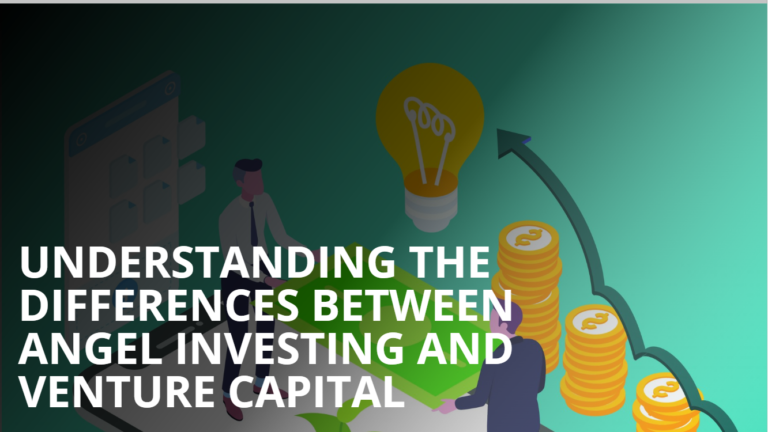
Navigating the investment landscape can be challenging for entrepreneurs, especially when deciding between angel investors and venture capitalists. In the article” key distinctions between these two types of investors are explored, offering valuable insights for founders seeking funding. Here’s a comprehensive guide to understanding these differences and how they might impact your business.
Angel Investing vs. Venture Capital: Key Differences
1. Source of Funds
The primary difference between angel investors and venture capitalists lies in the origin of their investment funds:
-
Angel Investors: These individuals invest their own personal funds. They typically make smaller investments, ranging from $10,000 to $100,000 per deal. Since they are using their own money, they often invest in familiar markets and individuals to reduce risk.
-
Venture Capitalists: These investors manage funds raised from Limited Partners (LPs) and aim to generate returns for these partners. They invest larger sums, often in the millions, due to managing larger pools of capital. This scale makes it less feasible for them to invest in smaller deals.
2. Investment Strategy
The approach and focus of investment differ between angel investors and venture capitalists:
-
Angel Investors: They often invest in areas they are familiar with, relying on their personal knowledge and networks. This strategy helps them to minimize risk and make decisions based on a personal understanding of the market or entrepreneur.
-
Venture Capitalists: These investors typically seek out high-growth potential opportunities, even in unfamiliar markets or with entrepreneurs they have not previously encountered. Their strategy is to identify and capitalize on new, scalable business opportunities with significant upside.
3. Speed of Decision-Making
The speed at which investment decisions are made can vary greatly:
-
Angel Investors: They can make quick decisions since they are investing their own funds. This agility allows them to seize opportunities without lengthy approval processes.
-
Venture Capitalists: They must conduct extensive due diligence and consult with their investment teams and LPs before finalizing a deal. This thorough process ensures that they make informed decisions but can also slow down the investment timeline.
Evaluating the Quality of Investors
It’s important to note that neither angel investing nor venture capital is inherently better or worse; the effectiveness of the investment largely depends on the individuals involved:
-
Angel Investors: While some may offer valuable advice and a strong commitment to the growth of their portfolio companies, others may be less engaged or even counterproductive.
-
Venture Capitalists: Similarly, some venture capitalists are highly involved and supportive, providing significant value beyond capital. Conversely, others may not meet expectations or fail to actively support their investments.
Conclusion
Choosing between angel investors and venture capitalists involves understanding these fundamental differences and how they align with your business needs. Founders should carefully evaluate potential investors, considering not only their investment capabilities but also their level of engagement and support. By doing so, you can better target the right investors who will contribute positively to your startup’s journey and success.
